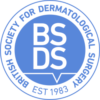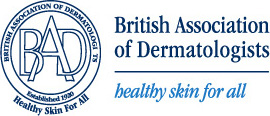I am happy to consult regarding all skin conditions, both common and rare, including, but not confined to:
Skin cancer – diagnosis and treatment including melanoma, squamous cell carcinoma and basal cell carcinoma. This is a major area of my practice and the area I have a particular sub-specialist interest in.
Precancerous skin lesions/sun damage – many treatments are available to prevent these lesions from progressing further.
Benign skin lesions – diagnosis and treatment as required.
Acne – discussion of all available treatments including Roaccutane
Rosacea and perioral dermatitis
Rhinophyma – treatment to reshape and rescuplture the nasal contour
Warts – discussion of cryotherapy and other treatment modalities
Eczema – to discuss long-term management options including new treatments
Contact dermatitis, including patch testing for allergic or occupational eczema if indicated
Psoriasis – there are now many treatments available to gain long-term control over this troublesome condition
Diagnosis and investigation of unusual skin rashes including lupus, pemphigoid, mycosis fungoides etc etc
Alopecia – assessment and diagnosis; treatment options explained. Some patients may require a more specialised opinion for unusual hair conditions in which case onward referral can be arranged.
Special Interests
I am a Consultant Dermatologist and Dermatological Surgeon, and I have a special interest and expertise in the diagnosis and management of skin cancer, and in particular:
- Dermoscopy: an imaging device which allows us to see beneath the top surface layer of the skin to assess some of the deeper structures, including blood vessels and pigment cells. With experience, this allows for high diagnostic accuracy when examining skin lesions, both benign and potentially malignant. I am a member of the International Dermoscopy Society and have attended numerous Dermoscopy meetings and courses.
- Non-surgical management of precancerous and superficial skin cancers – there are now a range of potential treatment options for precancerous skin lesions and some superficial skin cancers, including topical therapies (Efudix cream, Aldara cream), Cryotherapy (liquid nitrogen freezing treatment), Shave or Curettage (see procedures section for more information), and photodynamic therapy (PDT). I can advise whether these are a suitable option for you.
- Skin Surgery: I have specialised in skin surgery for most of career, and I am very experienced at removing skin cancers surgically. This includes straightforward excision with direct closure of the wound, up to complex surgical procedures to remove skin cancers from the face, especially around the nose, lips, forehead, temples and ears, with reconstruction via full thickness skin grafts or local flaps. I take great care to obtain the best possible surgical outcomes for my patients and have a reputation for doing very ‘neat’ surgical work with excellent cosmetic results.
- Cosmetic treatments: as a consequence of the above specialisation, I have also amassed a great deal of experience in removing benign skin lesions for cosmetic reasons, work which nowadays is often not available on the NHS. The includes removal of skin tags, seborrhoeic keratoses (senile warts), benign moles, cysts, lipomas (fatty lumps), and numerous other benign lesions. I can advise you regarding the best way of dealing with a troublesome skin lesion to give the best result.
- Moh’s surgery – at the current time I do not offer Moh’s surgery for skin cancer, but I can advise as to whether this is the best option for you and refer accordingly.
A few extra points:
Allergy Testing
Please note that although I do offer allergy testing, this is Patch Testing to investigate allergic forms of eczema, for example allergic hand eczema. This does not incorporate Prick Testing which is used to investigate food allergies and airborne allergies (e.g. dust, pollen, cat dander).
Prick testing is not usually very useful in the assessment of eczema but can be indicated to look into the cause of certain types of urticaria (hives). These tests are undertaken by the immunology department in Plymouth, not by dermatology. I can advise if immunology referral is worth pursuing for individual cases, but cannot offer this type of allergy testing.
Paediatric patients (under 16)
Please note that I am not a specialist paediatric dermatologist. I am more than happy to see young people to treat acne or to assess moles or warts, but for the management of paediatric eczema or rashes in babies and young children I would recommend the opinion of a paediatric dermatologist (available at the Plymouth Nuffield).
Female problems
I am happy to see and advise female patients with problems affecting the genital skin, but please note that there is now a female consultant dermatologist available for consultations at the Plymouth Nuffield who would be happy to see you.
Managing expectations
It is worth pointing out that although there has been great progress in recent years in dermatology, with new and innovative treatments emerging for a wide range of skin conditions that were previously difficult to manage, for some skin conditions there can still be little to offer, although things are likely to change over time.
For example, at the current time no effective treatments are readily available for most pigmentation disorders, including increased facial pigmentation, or loss of skin pigmentation including vitiligo. If you are not sure whether it would be worth coming for a consultation, for any sort of skin problem, please do send an enquiry and if it is unlikely that I can help you I will be honest and tell you beforehand.





